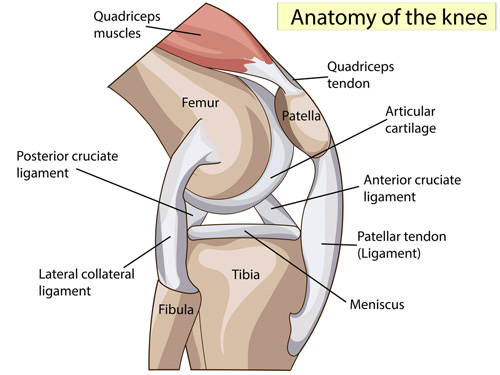Free Case Evaluation
You will never be charged a fee unless a recovery is made for you.
We are no longer accepting new cases.
DePuy Synthes touted their patented Attune Knee Replacement System as utilizing innovative technologies to provide improved range of motion, giving patients “the confidence of a stable knee replacement.”

Knee replacement, also known as knee arthroplasty, is for people with severe knee damage that causes them pain, interfering with or preventing normal movement and activity, for which other treatments and medicine have not been effective. Total knee replacement surgery involves removing damaged cartilage and bone from the surface of the knee joint and replacing them with an implant made of metal and plastic. Total knee replacement surgery is often indicated for people with osteoarthritis, but it may also be performed for other diseases that affect the knees, such as rheumatoid arthritis and psoriatic arthritis.
Knee replacement surgery is designed to give recipients new quality of life—to relieve their pain and give them increased ability to participate in daily activities.
However, the DePuy Synthes Attune Knee Replacement System has been found to have an unusually high rate of failure, as reported by surgeons to the Federal Food and Drug Administration (FDA), due to debonding (loosening) of the cement interface it requires. In other words, the glue-like substance used to hold the implant in place is not reliable—sometimes it loosens. So the tibial part of the implant comes loose, causing pain and destabilization of the implant. Revision surgery must then be performed to remove the faulty implant and replace it with another. Oftentimes, revision surgery is more invasive and more painful than the original surgery. So people who endured the original surgery hoping for relief and improved quality of life instead get more pain and more surgery.
To further complicate matters, it can be tricky to diagnose the problem as loosening cement. Obviously, people who have had knee replacement surgery expect their pain to decrease and, if it does not, they return to their doctor for advice and further treatment. But some people do not return right away. They wait, thinking they are experiencing normal post-operative pain. And when patients do finally report the pain to their doctor, the exams and x-rays may not show the loosening cement. In fact, the cement failure may not even be identified until a second replacement surgery is performed.
Symptoms that may indicate failure of the DePuy Synthes Attune Knee Replacement System include:
People who have invested time and money in a surgery to improve their quality of life and provide pain-free movement but instead have to endure more pain and more surgery due to cement failure may be entitled to compensation from DePuy Synthes for the failure of the Attune Knee Replacement System to perform as advertised. Those people deserve compensation for their pain, for their medical bills, and for missed work and wages. Our lawyers are currently accepting these cases and filing lawsuits on behalf of patients.
If you or a family member or loved one received a DePuy Synthes Attune Knee Replacement and are experiencing unexpected and continued pain, are facing revision surgery, or have recently had revision surgery due to cement loosening we urge you to contact us. No one who received a device that failed, caused more pain, and required more surgery should have to fight alone. Let us help you.
Sources
You will never be charged a fee unless a recovery is made for you.